How Do Magicians Do Mind Reading Tricks
How Mentalists Read Minds

review
"He got even the most cynical of our team to participate and be amazed at what he could predict, Jon fabricated believers of us all !"
—Tracy Emory, Executive Assistant, Amazon

VIRTUAL MENTALIST for ZOOM
Live, interactive, and fun online virtual mentalist show for virtual parties, team meetings, and corporate events

What Is A Mentalist?
Mentalist Definition
-
A person who performs mental tricks for entertainment.
-
A magician masquerading as a mind reader.
-
A student or practitioner of the branch of magic techniques referred to every bit mentalism.
A mentalist uses technical skill, misdirection, psychological subtleties, hypnosis (suggestion), cold reading, and showmanship to demonstrate what appears to be extraordinary-mind reading, foresight, clairvoyance, and telekinesis.
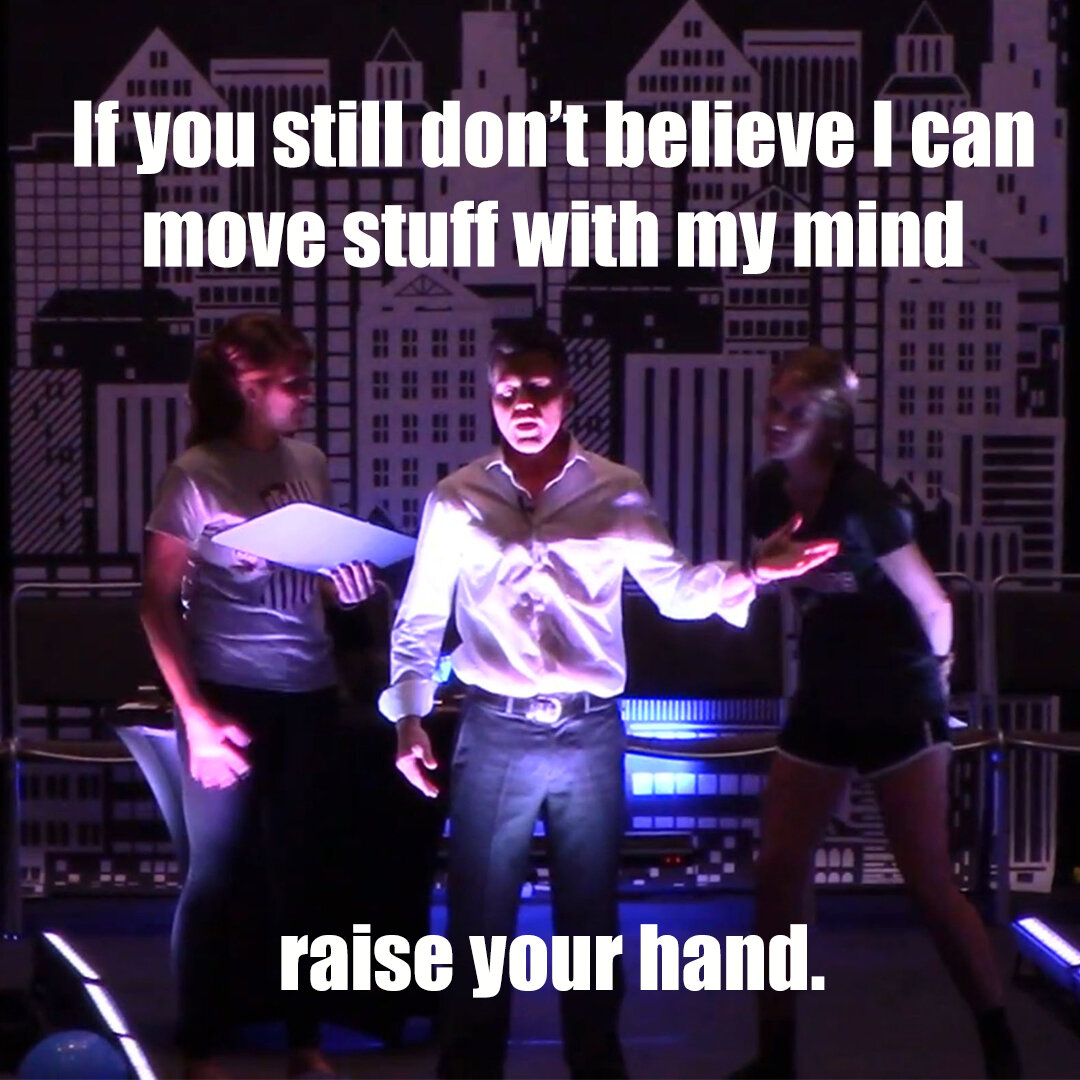
One of the mentalist personality traits is curiosity. Mentalists are exceptionally curious people. And uncommonly curious people tend to be exceptional readers.
The first book I read on mentalism was Thirteen Steps to Mentalism. Oftentimes called by mentalists "the bible of mentalism," Corinda's masterpiece is widely regarded by historic mentalists as the best book on mentalism magic. xiii Steps is the bible of mentalism and mentalists regard this book with reverence.
I notwithstanding review my dog-eared hardcover 13 Steps, which I bought in 1999. Now you can hands purchase it online.

Mentalist Significant
-
Magic is appearing to exercise the impossible.
Mentalism is really doing the highly improbable.
-
Magic elicits the question, "How did you lot do that?"
Mentalism evokes the question, "How did you know that?" -
A wizard offers a dazzling display for the optics.
A mentalist is the bout guide of your imagination. -
Magic is doing. Mentalism is knowing.
When a spectator views a magic show, the spectator feels surprise, wonder, and astonishment. Rarely does the performing art shift the spectator's view of how the world works.
When the sorcerer snaps his fingers, waves the magic wand, or sprinkles woofle grit, the spectator knows the wizard doesn't really need the woofle dust.
Nevertheless, when spectators witness a psychic entertainer similar Uri Geller or a mentalist like Koran, many are left wondering whether the mentalist has mental magic feats like clairvoyance, telepathy, ESP, is an expert at mind control, or tin really read minds.
For a mentalist, the woofle dust is "body language reading" or "NLP" or fifty-fifty agreement human being behavior or another plausible explanation.
Spectators believe in the mentalist's woofle dust.

How Does Mentalism Piece of work?
The method is least important, simply the method essential. - Jon Finch
-
The mentalist forces a thought onto a participant, then pretends to guess the forced idea.
-
The mentalist divines a genuine pick using trickery.
-
The range force—a combination of the force and divination.
-
Opportunism—a careless spectator leaks information.
A idea is forced any fourth dimension a participant makes an inevitable choice. The mentalist leads the participant into choosing a name or number. The real trick with a force is to make the "costless" choice appear to be convincing, without making it appear contrived.
The second way mentalism magic works is where the participant makes a genuinely free choice. In this case, performers must gain the info through subterfuge.
In the by, a volunteer may choose a book in the library and choose a word from that volume. During the 1570s, Italian magician Girolamo Scotto performed for audiences using sleight-of-hand magic — Girolamo Scotto was the primeval recorded performance of mentalism. In 2020, in that location's no limit to how many words are on Wikipedia, for example. So a volunteer may pull out her phone and call up of a word from her favorite website. It's no longer necessary to get to the library.
More on that subsequently.
The range forcefulness is a combination of a forced idea option and divination by body language cues, unconscious feedback from the participant, power of suggestion, forked patter, and in some cases a hufflepuff.
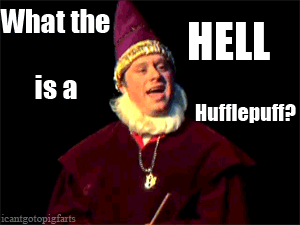
As an opportunist, the mentalist may pickpocket a wallet to gain info such as the participant'due south name, birthday, star sign.

Are Mentalists Only Magicians Doing Magic Tricks?
-
Aye
-
Mentalists are just magicians
-
Since mentalism is a co-operative of magic, the mentalist is a blazon of sorcerer
When deciding whether a performance is "magic" or "mentalism," a simple question you can ask yourself is, "Could this happen by chance?"
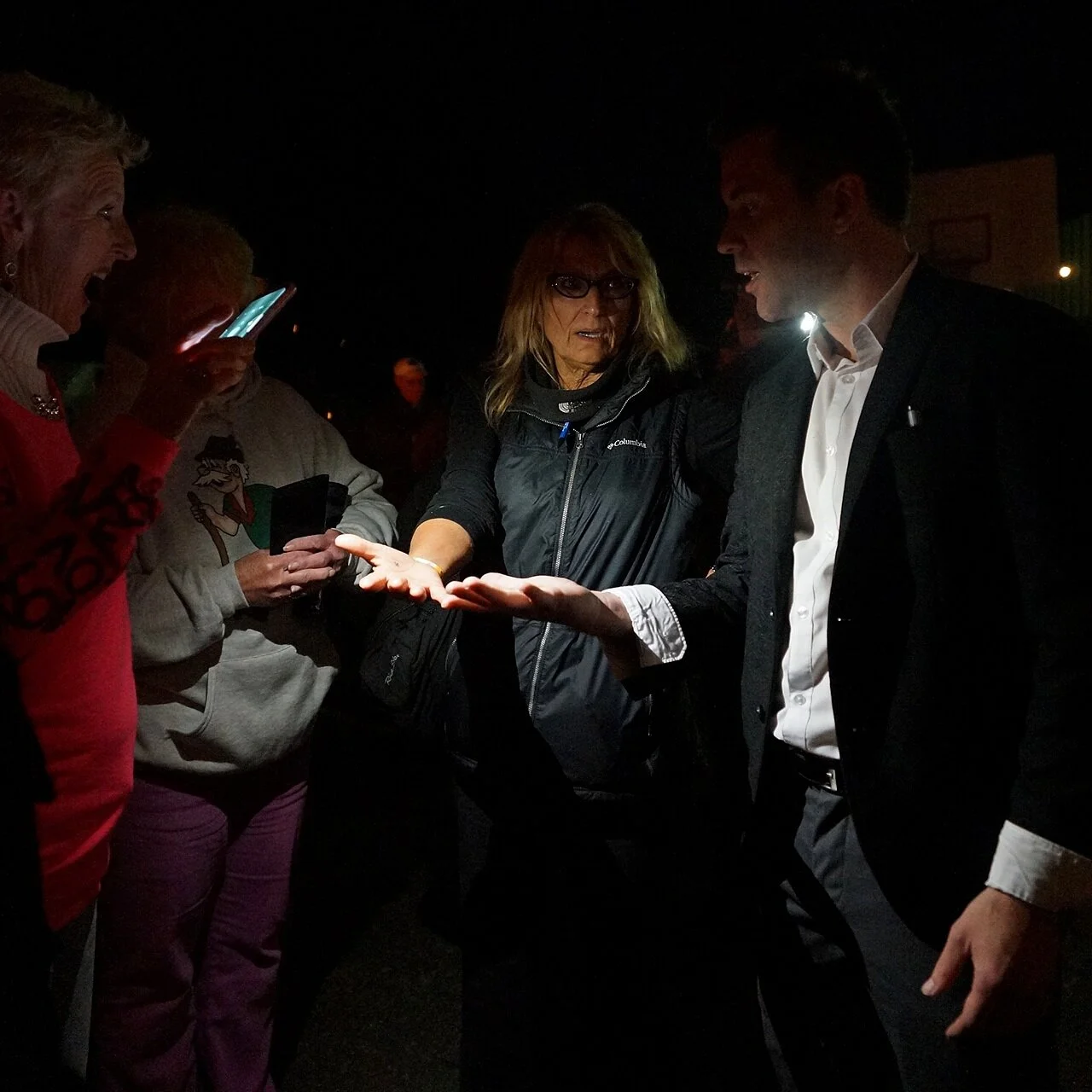
In other words, is this something that should happen only one in 100 times—but he'southward doing it again and once again?
Or is this something that should never happen according to the known laws of physics?
Let'south take an example of the virtually common carte du jour trick known to man:
The sorcerer divines a lost playing carte.
You lot have a carte. Shuffle back into the deck. Magician finds it.
You might think of this equally a magic play a joke on.
But, strictly speaking, it's a mentalism feat.
Yes, you read that correct.

No magic happens. At least non in the discovery of the carte.
The revelation of the card is often magical (and entertaining).
How do we know the divergence?
Inquire yourself, if the performer were blindfolded, and reached forward to pluck a bill of fare from the spread of 52 cards, would he probable catch my card given a hundred attempts?
The answer is a resounding Yes!
Odds are he would, given a hundred attempts, notice your one card out of 52. What makes information technology astounding isn't that the mentalist correctly guessed the carte once, but that he does then whenever chosen to exercise and so.
Exactly what, so, is a magic trick?
The Linking Rings. Solid steel rings melt through ane another. That's impossible material beliefs, not just an unlikely coincidence.
That's altogether impossible.
If an eager greenhorn enquire,
"How to exist a mentalist?"
then 13 Steps is the book to read first (and final).
I practise not merits whatsoever psychic abilities—at that place are enough people who do that for me.
I use the psychological cues audience members naturally and inevitably leak and a bit of exact kung fu to achieve what seems similar mind reading. In short, I'm using merely my v senses: the 6th is a human psychology illusion.
Every mentalist you have ever seen is a magician masquerading as a heed reader with extraordinary powers.
Consider Oz Pearlman, 1 of the hardest working professional person mentalists today, and winner of AGC (America's Got Talent).
It's no coincidence earlier Oz re-branded himself as a mentalist, he worked for years as a magician in a magic shop and even created and sold his innovative phase magic tricks.
At that place are certainly many mentalists who exercise not (consciously) utilise trickery…
…merely yous haven't seen them.
Every mentalist you've seen is a magician (including all modern mentalists on TV).
Why aren't the "real" mentalists on Tv? Why do the fraudulent seers (many mentalists nowadays overtly state it'due south all trickery) go so pop? Simple.
Frankly, real mentalists aren't very skilful.
It's much more entertaining to spotter mentalist Lior Suchard correctly guess your canis familiaris'southward proper name than it is to watch an unedited video of a "mentalist" similar John Edwards or Sylvia Brown.
Someone like John Edwards will toss out 2 or 3 letters to a wide audition, "I'm getting a name starting with 1000, or it could be N… No? …peradventure it's upside down, a Westward."
Someone in the audience stands up, "That must exist my father, William. How did he know my begetter's name was William!" So Edwards tosses out ten guesses equally to how William died, and 1 of them is right.
Of course, Edwards didn't point to a adult female and say, "Your father'due south proper name is William." She filled in the blanks for him, and he—through agile circumlocution, a commanding persona, and a ton of editing—took credit for everything.
It's like shooting an arrow and then painting the target around where the dart lands.
Information technology's all about where you draw the target.
Simple.
John Edwards and Sylvia Brown shoot the arrow, then paint the target.

Why Entertainers Choose Mentalism
Whereas magic can be very surprising, even shocking, mentalism's advantage is it leaves people thinking long after the event.
No matter how astonishing the magic trick, a person can tell themselves several things to get them to finish thinking of it.
It must have been sleight of hand,I know information technology was simply an illusion,Possibly I was distracted and missed something.
People are slower to dismiss the mind-farming machinations of a master mentalist like Koran.
Consider the following video of a straightforward demonstration from the year 2000 (that's me):
When I was 12 years old, in the library, I read a volume by the Astonishing Kreskin on how to condition your heed so yous can approximate what Kreskin does on stage. Even with the limited awareness of a 12-twelvemonth-old, I felt disappointed in Kreskin'due south professed methods.
But what Kreskin lacked in his lame methods he fabricated up for in his showmanship and ability to inspire people.
Mentalism's highest aspiration is arousing in people the space possibilities of the focused homo mind, will, and consciousness—possibilities that take fascinated people for thousands of years, and possibilities which psychological science continues to explore.
A person may pass as a magician without having much of a personality, and so long as the few tricks don't suck.
Mentalism is the reverse.
A mentalist must be likable, charismatic, polite, charming, and courteous for his operation to entertain—regardless of how good are the mentalism tricks. The mentalist, having cultivated these traits, can go out his audience with a positive experience echoing for the rest of their lives.
Mentalism, conveyed as "just beyond electric current homo understanding" is designed for amazing audiences by provoking a sense of wonder within them. In that location are other ways of budgeted the subject, only the most straightforward arroyo is to present mentalism from the above viewpoint.
Even most spectators who are skeptical secretly want the feel of witnessing something uncanny.
These are the experiences leaving 1 feeling ready, alive, and real.
Or feeling empowered. Through my work as a mentalist, I believe it is possible to evangelize experiences that crusade your audiences to feel this.
Merely for this to happen, everything has to line upwardly just right.
Mentalism must exist psychologically convincing. Then the ride the mentalist must have the audition on should ultimately stand for the feeling that i might get when experiencing some kind of strange mind power or frenetic, inspired moment.

It's Not All Mindreading
Examples of Mentalism
When people go see a mentalism issue, they frequently refer to the performer every bit a "heed reader." In the performance field of mentalism, some furnishings are mind reading. Other furnishings have that "brainy" flavour simply are non, strictly speaking, heed reading.
If you can't predict the future, create information technology.
Many effects that look similar heed reading on the surface are based on influence (the performer influences or forces the participant to think of XYZ, so the mentalist pretends to read the participant's listen).
Let'due south take a closer look.
Having 2 participants coincidentally (or inevitably?) somehow think of the same discussion or number is exciting and entertaining mentalism. Just that's engineering coincidences, not listen reading.
The upshot—equally perceived by the audience—was a unique coincidence.
Consider the familiar mentalistical mathematics demonstration of rapid adding.
Impressive in any event, simply not mind reading.
Even memorizing a deck of cards is an impressive mental feat only on review remembering the guild of a deck of cards is not mind-reading. It's experimental psychology.
So in that location are prediction effects. The performer jots downwards a word on a slice of paper, you proper name the first give-and-take that comes to mind. Your give-and-take and the discussion on the slice of paper are a friction match! These predictions are impressive, but not listen reading. To accomplish a stellar prediction, the performer does not need the ability to read minds.
He needs only precognition—to know the future.
Predictions are undoubtedly the well-nigh outlandish premise to present.
If you lot believe the mentalist has supernatural powers, and so you lot may accept been convinced by such a stunt.
Just call up about it.
If you could predict a stranger'south decisions, beliefs, and even events in the world, are you going to decide to be a stage entertainer performing your polished act on talk shows?
Of course not.
Imagine yous are Derren Brown, Max Maven, Lior Suchard, Jon Finch, Uri Geller, Joseph Dunninger (influenced many practitioners of mentalism in modern history), or Oz Pearlman, and you have some mental gift of influencing thoughts and making incredible forecasts and specific predictions of not only behavior just events. So there are many paths you'd choose before showing off your mindreading ability to the encephalon earth doing shows.
Heck, you lot wouldn't even need an amanuensis. You lot'd be able to know the best prospects to connect with. You'd know their budget before sending them a quote. That's all assuming yous'd fifty-fifty bother performing deck parlor tricks to make a living.
There are besides telekinetic (also called "psychokinetic") demonstrations. The mentalist bends metal objects such as coins or spoons, apparently without force. I and other mentalists similar Max Maven—strict mentalists like Derren Dark-brown and Patrick Jane—disavow such vulgar demonstrations (specially Derren Brown). They are closely associated with underhandedness, serve merely to twist the thread suspending disbelief, and to mix magic with mentalism skills can border on outright vandalism.
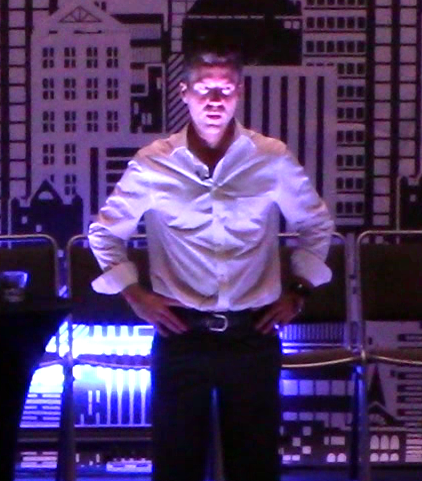
I am not the all-time mentalist (or fifty-fifty in the top three), but I intend to show you about how a mentalist reads minds. Before you acquire how, we need to become some definitions out of the way.

How Do Mentalists Piece of work?
Mentalists utilize an enormous scope of tactics to achieve what looks like mindreading or mental influence.
Though an entertainer from the phase, the mentalist showman will emphasize his expertise in reading body language, NLP, and other such window dressing.
These are red herrings.
A hundred years agone, the mentalist was probable a master of the switch. In our twenty-four hours, more than mentalists are using volume tests or constructive mind control. Mind control may announced as a jedi heed play a joke on and, in effect, every bit a prediction, but it is influence. Magicians similar Penn & Teller—mentalists included—apply the term strength do describe whatever method which leads the participant to a "choice." In some cases the strength is probable; in others, the force is inevitable. Such methods may be mechanical or psychological.
How Practise Mentalists Read Minds?
About people don't bother to recollect about information technology.
But first, it'southward essential to distinguish the difference between method and result. The mentalism effect on the audience is mindreading, but when entertainers such as magicians and mentalists perform, seldom is the method and effect the same.
The term "event" is often confused with "method." Magicians encounter a distinction between method and effect. Either can be seductive, and either tin can be uninteresting.
Though the effect might be "coincidence" or "prediction," the method is ofttimes heed-reading with something else tossed in. Not necessarily authentic heed reading, or authentic anything, just once yous can (plainly) read a listen, yous tin present that skill in a diversity of ways, effect-wise.
Desire to know a secret?
A clean prediction is the most arresting, memorable, and undoubtedly incommunicable accomplishment available to the mentalist. Ironically, it is too the easiest to achieve (in my stance).
Surely information technology is less plausible to see the future than to know a stranger'due south thoughts?
Despite this, I strive to achieve the effect of mind-reading, because this—though more possible and believable than foresight—is more challenging, practically speaking.
Some of the best mentalism effects are so spellbinding the gasps give manner to impaired, open-oral cavity expressions. It can be moving and personal. One is similar a cheap transient cologne whose odour is lovely merely transient and faded an hour later; the other is similar a slow-fire fig oil whose aroma lingers fifty-fifty afterwards several chimera baths.
It's possible to achieve both, and it's possible to fail at both.
...in under a minute.
You lot Can't Read My Mind, I'm Unpredictable
Honestly, Derren Brown knew you were thinking that.
Still not convinced?
Either way, the logical objection to all mentalism effects is…
If you can read minds, if you know the future, so why are y'all using this fantastic ability
to entertain us pea-brained humans?
Why not win the lottery or do something useful?
For the following reasons:
-
The reliability of some methods tends to diminish as the personal stakes increase.
-
The theoretical measurement obtained from mind reading in real-fourth dimension by a weak rotation of pi divided by zilch squared precludes doing virtually things useful. (Information technology'due south not difficult to get your caput around).
-
The deal I fabricated with these evil spirits on my shoulder
prohibits playing the lottery or any such obscene abuse of my ability.
We've all done it.

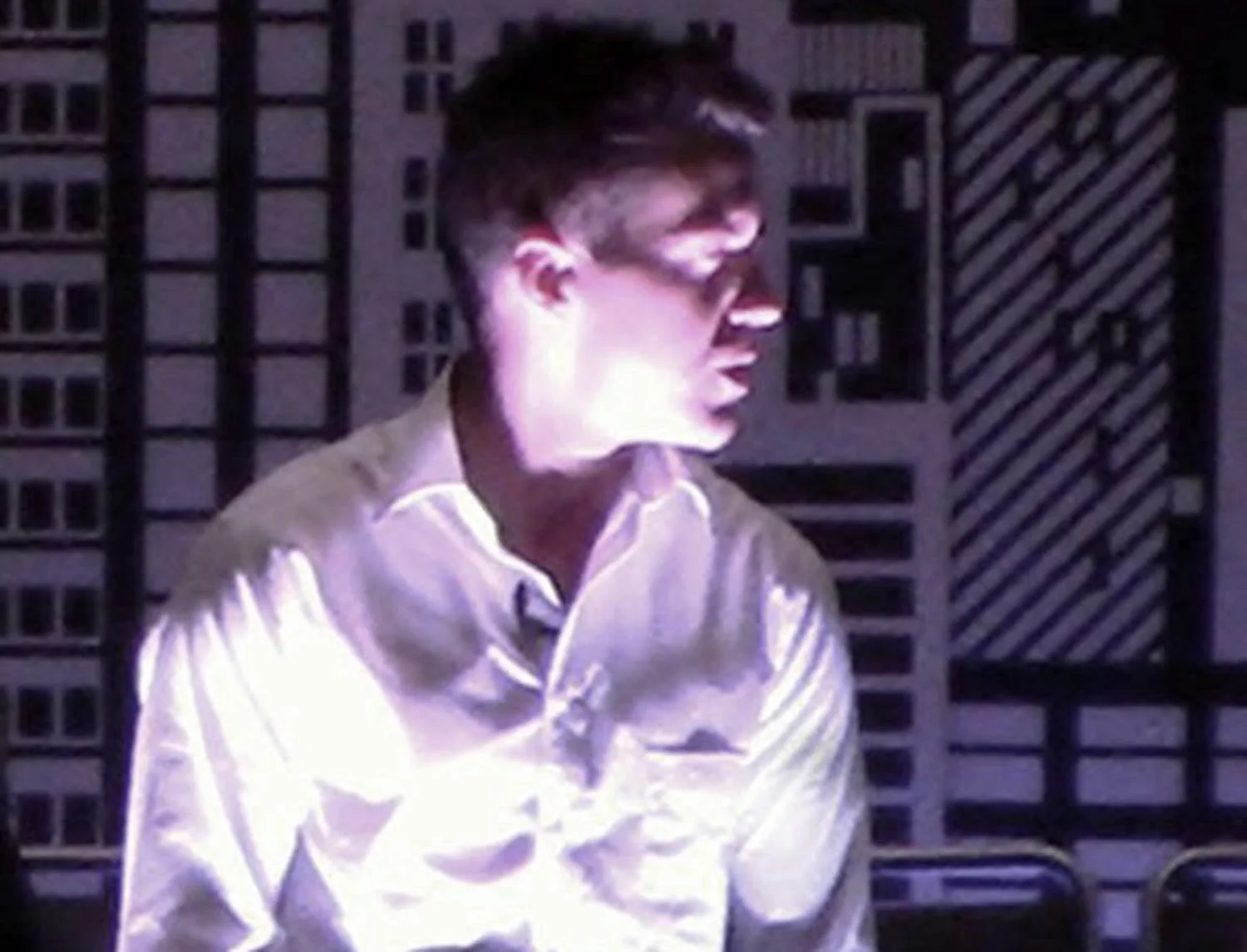
It'southward Not Simple Telepathy
Simply every bit a magician has at his disposal a dozen mechanical techniques either to force you to "choose" a playing carte, or to discover a card you freely selected, mentalists may use a dozen cognitive artifices to read your thought with their mental feats.
At this point, you probably realize that
A mentalist does not read a heed like a book.
Sometimes information technology's straightforward. But oft, even unremarkably, he needs a more than reliable method.
The larger the audience, the more than reliable the method must be. Why would a mentalist performing a stage show, nighttime after night, rely on a statistical 85% or ninety% tendency?
The mentalist must perform each show as if it's his last.
The college the stakes, the same thing.
Reading a thought is more like reading a single, blurry word from a book while wearing sunglasses—or even seeing an prototype related to a proper name in a book hanging in a cloud.
If that metaphor seems strange to you lot, there's nothing wrong with y'all. You aren't a mentalist.
What Does An Ashtray Have to Exercise with A Bridal Gown,
And What Does A Conjugal Gown Have in Common with A Portobello Mushroom?
Ask that question of a dozen mentalists, and you'll become a dozen different answers.
But you won't notice a dozen mentalists because there are fewer mentalists than at that place are magicians.
The Physical Nature of A Human Thought
Y'all wouldn't try to read a folio from a science book if you couldn't open up the volume to the table of contents. Like a book, human thoughts are physical. A give-and-take is a germination of letters, and a thought is a grade of ideas. Like a face, every thought has necessary features in essential harmony. The variety of human faces is space yet each is unique. Subtle alterations in the oral fissure, nose, eyes, tin can upshot an expression of joy or grief.
Simply fifty-fifty the two near different faces are more similar to each other than they are to a human being hand.
The aforementioned can exist said of thoughts.
Many believe thoughts are not linear and they don't enter the mind ane at a time. This is not truthful.
Thoughts may seem cluttered, irrational, and meandering. Merely just when you don't understand why the ideas popped into your mind. Unless someone practice deliberate concentration, all thoughts you think throughout your day are uninvited.
You did not invite them. And some are unwelcome.
One thought seeming "random" really bubbled upward into your brain because of a previous related idea. Y'all probably believe thought XYZ is unrelated to opinion ABC, which preceded thought XYZ.
Only you are wrong.
The recognition of your starting time thought's human relationship to the post-obit thought is rare. Simply it's there if you lot call up about it.
Mentalists are all-time served by developing a gear up of precise skills for shaping thoughts into clear communication. The means a mentalist will use these skills are as unique to the item mentalist and the specific participant, as are the number of individual impulses and witting choices a mentalist makes in the grade of edifice a operation.
Considering the skills are separable from i another, they allow the mentalist to vary them to meet any demand on stage. When reading a thought or shifting someone else's thoughts, deck mileage varies according to the participant's focus and memory. And according to the mentalist's skill level.
Most people tin can focus their attention on 1 idea for mere seconds. When they finally exercise concentrate, even that image is wiggly. This is why an experiment in mentalism can oftentimes appear difficult and sputtery in contrast to a magic trick.

Everything Is Mental Phenomena
Sounds stupid, right?
Retrieve almost it like this.
Aside from the telekinesis effects (aka psychokinesis), the prediction and strange coincidence effects are oftentimes just a creative wedding between listen reading and influence, or a union between heed reading and mechanical casuistry—in disguise.
For example, on the surface, what appears to be an uncanny coincidence of 2 participants thinking of the same number may, under the surface, be discernment plus influence.
It's pretty obvious when y'all remember about it.
When instructed to think of a number, two people never think of the aforementioned number simultaneously. One invariably thinks of a number earlier the other does. The mentalist has only to discern the number of the commencement participant then subtly force the next participant to think of the same number. Elementary!
But there'south one small catch.
According to psychological science, reliable heed-reading must always be achieved in one of two means (or sometimes, a combination of both).
The Ii Method-Classes of Mentalism Tricks
All magic tricks fall nether the 8 types of magic tricks, and in the same style, except past accident, mind reading cannot happen outside these classes:
-
The mentalist forces or influences the participant to think of XYZ thought from an apparently space universe of options. The main claiming for the mentalist is to achieve the illusion of a free decision.
This is like a wizard or illusionist levitating. The challenge is non in figuring out how to float unsuspended. The merely claiming is to solve is how to hide the magnet, or render the cables invisible, or demonstrate there are no threads, wires, or forklifts, etc.
-
The mentalist permits a genuinely costless choice from a genuinely infinite universe of options—such as imaginations of the past or memories of the time to come—and then, somehow, via a diverseness of principles and techniques, discovers the free thought.
Y'all have two paths:
Strength your participant to think of the thought you will pretend to discern (the real trick here is creating the illusion of a free pick). Or stand perfectly however as your participant freely thinks of a thought (the real trick here is discerning the thought or behavior, which you can do in several ways).
Consider the following experiment:
Y'all think of a colour, fauna, or any word. The performer correctly guesses that colour, beast, or word.

How Do Mentalists Gauge Words Or Names?
A professional mentalist like Corinda, Uri Geller, Banachek, Joseph Dunninger, or celebrity Derren Brown, knows a dozen or more ways:
Let's say the mentalist needs the participant to think of a long discussion and non a short discussion. If he says, "think of a word longer than 8 messages" then it doesn't feel similar a free option.
Instead, during his performance, the all-time mentalist may say to the group, "Should we make this like shooting fish in a barrel or difficult?"
Because the performer is a educatee of behaviorism he knows the group will shout, "Difficult!"
The performer drops his caput as if disappointed, "Fine. Wendy, remember of a discussion, but don't make information technology piece of cake."
Now the performer says to the group, "How many messages should the word be, at to the lowest degree?"
Audition members shout numbers-some of the numbers are ridiculous, but it doesn't affair. The performer points to a spot between 2 random audience members every bit if he heard someone say "8." The performer says, "That'll do. Wendy, recollect of a give-and-take at least viii messages long."
In the same way, a performer can strength a color and not the even virtually skeptical spectator will catch the ruse.
Past constraining the universe of options to include but 8+ letter words, he's made his chore much easier. But the play a trick on was making the constraint seem complimentary and natural (uncontrived).
Suppose the mentalist on deck, Max Maven, already knows Wendy is thinking of one of her children. He knows she has two daughters and her daughter's names are Amy and Kristina. The mentalist is most to reveal who Wendy is thinking of. At this moment, he does not know whether it'south Amy or Kristina.
He tells Wendy, "Think of how many letters are in this person'due south name. You lot got it?"
Wendy says nothing, but Max Maven now knows she's thinking of her daughter Amy.
How?
Because the performer punctuated his request with, "You got information technology?" Wendy will, maintaining eye contact with the performer, quickly nod her head—if she's thinking of Amy.
If Wendy is thinking of Kristina, she'll await away, shake her head, and say "Hold on."
By using the participant's silent feedback, the mentalist discerned which daughter she was thinking of.
Stay with me; this gets ameliorate.
A combination of the above is, to my heed, the cleverest mentalism approach. Invisibly restrict the participant's behavior to decide on a thought from an patently infinite—but actually constrained—constellation of options; then, either subtly force the outcome or (somehow) discover the choice.
There are too many mentalism techniques to get into hither and y'all've already read more than psychological science than almost volition read, and so I won't bore yous with the nuts and bolts.
The above listing of ii is exhaustive and definite.

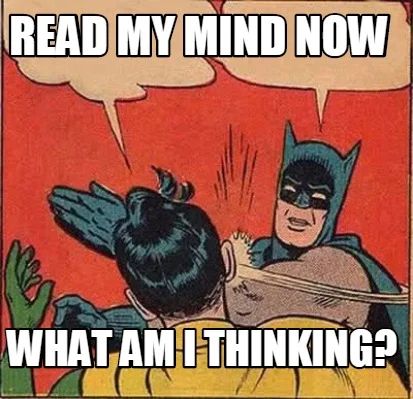
Now, what virtually some secret techniques you tin go out and use today?
It wouldn't be fair to all the hard-working fraudulent mediums out at that place using the techniques on the vulnerable for personal gain. Who do you lot recollect I am the masked magician?

Jon Finch is one of the virtually popular mentalists in the world.
rodriguezsmor1940.blogspot.com
Source: https://www.finchmagician.com/blog/how-mentalists-read-minds
0 Response to "How Do Magicians Do Mind Reading Tricks"
Post a Comment